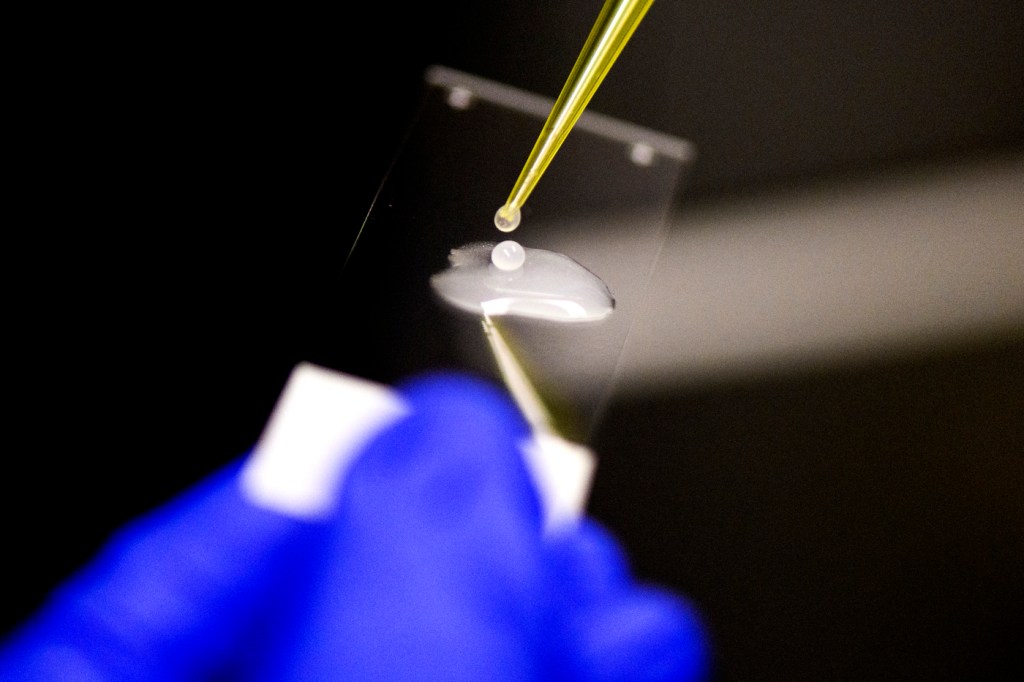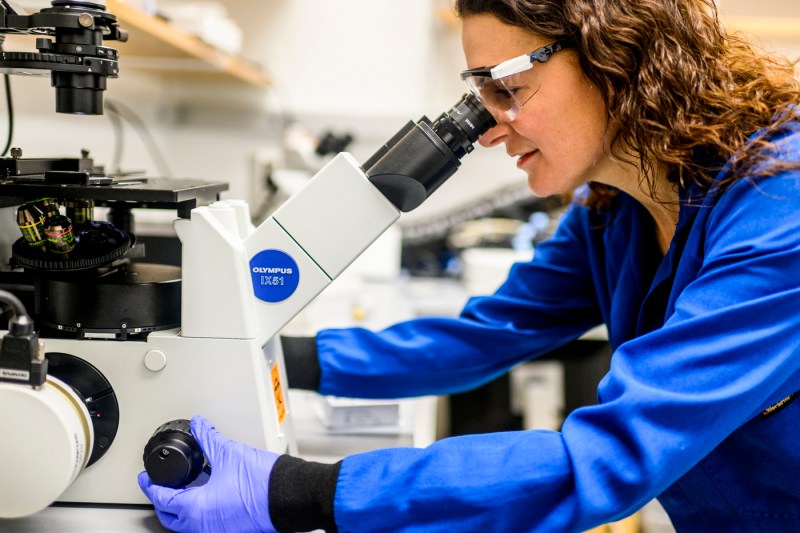Is gut health linked to mental health? We know they’re connected but how remains a mystery, Northeastern researcher says
“We don’t really understand the underlying mechanisms,” says Rebecca Carrier, a chemical engineering professor and associate chair of research at Northeastern.

It was an act of desperation: A woman with irritable bowel syndrome was looking for relief from her symptoms. She decided to try an at-home fecal microbiota transplant, aka a “poop transplant.”
Used to treat C. diff bacterial infections, this treatment can help introduce “good microbiomes” to the gut to ease gastrointestinal symptoms, and is being explored in clinical studies as a way to treat other conditions.
But the woman told Netflix in the documentary, “Hack Your Health: The Secrets of Your Gut,” that the at-home transplant caused her to get acne and depression — conditions her donors had — indicating a link between gut health and physical and mental health.
Doing an at-home procedure like this is risky and not recommended, said Rebecca Carrier, a chemical engineering professor and associate chair of research at Northeastern University.
But Carrier, whose research focuses on intestinal and retinal tissue engineering, said there’s other things people can do to improve their gut health and potentially their overall health.

There’s a “very well-established” link between gut health and mental health, as well as physical health symptoms related to nervous and cardiovascular system functions, Carrier said. But scientists don’t fully understand these links.
“What’s still lacking is the fundamental understanding of how gut health is impacting mental health,” she added. “We don’t really understand the underlying mechanisms. … We know that when a certain population has X, they also often have this shift in the microbiome. But we don’t know if X causes that shift in the microbiome or is it the microbiome causing X? That’s the biggest problem is not knowing. … I believe that as we come to understand these mechanisms more and more, we’re going to be seeing people using different microbiota-related therapeutic approaches.”
There are also studies to support the idea of good bacteria helping the gut, Carrier added. This is why traditional therapeutics like antibiotics can cause unwanted side effects — they wipe out both good and bad bacteria.
Featured Posts
“There’s certain strains of bacteria which are known to correlate with negative health outcomes and other strains of bacteria that are correlated with positive health outcomes,” she said. “But what makes it even more complicated is that there’s certain bacteria … associated with a number of different really good health outcomes, but there’s certain negative outcomes associated with it as well.”
It’s difficult to achieve the perfect balance with this in mind, Carrier said. But even with all these unknowns, there’s things the average person can do to improve their gut health if they’re having gastrointestinal symptoms or other health problems.
Carrier said taking a probiotic or prebiotic supplement can aid in improving gut health. A probiotic has living microbes that can help the existing ones in your gut. A prebiotic can help with growth of beneficial organisms in your gut.
While the science connecting gut health and the rest of your body is still unclear, the benefits here outweigh the risks. Added probiotics and prebiotics are also unlikely to have adverse side effects, Carrier added.
But there are different strains of bacteria in different probiotics and prebiotics, Carrier said.
“You could take a look and see which strains of bacteria are included in a given probiotic,” she said. “That can get very overwhelming.”
While you can buy probiotics and prebiotics as supplements, there are also foods that can help your gut. Fermented products like yogurt, kombucha and kimchi all naturally contain probiotics.
Certain bacteria break fiber down into short fatty chain acids that help the gut, Carrier said, which is why eating high-fiber foods can help your stomach.
Carrier also said some people’s gastrointestinal symptoms can be triggered by different types of food. Doing an elimination diet where one eliminates foods to see which ones might affect symptoms can be a way to resolve this, so long as it doesn’t prompt too much stress.
“There’s enough evidence out there to support that considering probiotics, prebiotics, and control of diet is a rational approach to impacting health,” Carrier said. “Do we know precisely what you should do and precisely how that’s changing the bacterial composition or the chemistry within your gut, and how that’s precisely changing the chemistry in your brain? No, I don’t think we are there yet, but there’s enough scientific evidence to suggest that exploring these approaches is a very rational thing to do.”











